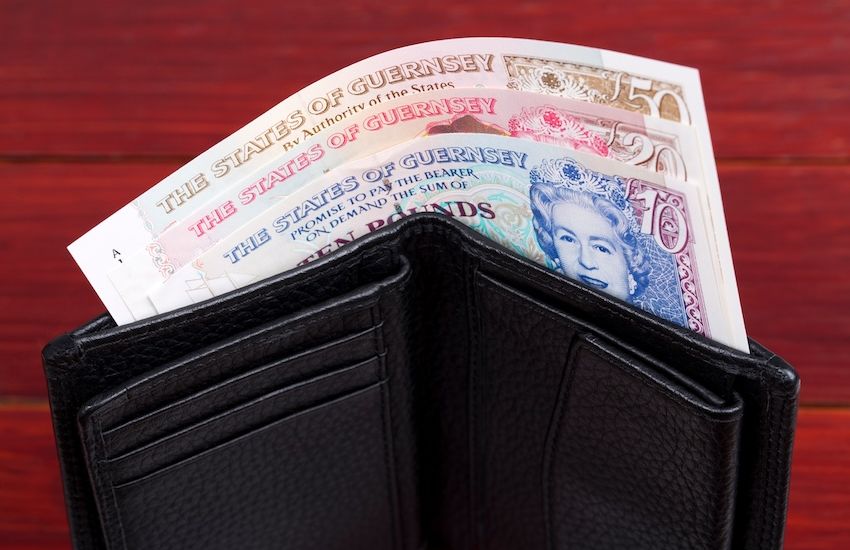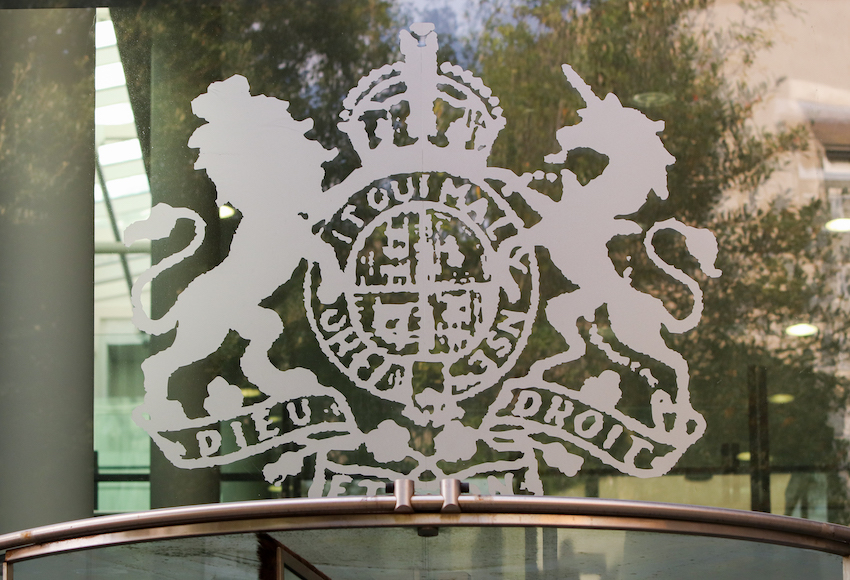


A man has lost more than £2,000 in savings after the Royal Court decided he had earned it from unlawful dealings, even though he was never charged with any crime for doing so.
Tyler Cowens was 18 years old when he was arrested in 2020 after a drugs raid on his home.
91g of cannabis resin was found, stored within a few different containers. His fingerprints were found on some of those containers.
£6,000 in cash was also recovered by Guernsey Border Agency Officers who conducted the search, which was said to be found in different sums in Mr Cowens' bedroom and other rooms within the property.
At the time Mr Cowens explained that he "doesn't trust banks" and said he would withdraw his wages from his bank account after being paid so that he could spend his money in the form of cash instead of by using a card.
The rest of the money was attributed to another resident of the property who said they had recently sold a vehicle for cash.
Neither man was charged in relation to the drugs found in their shared home, when the Crown Prosecutor decided not to pursue it. However, both men had refused to disclose the PIN codes to their phones during that investigation and so they were charged under the Regulation of Investigatory Powers (Bailiwick of Guernsey) Law, 2003 (RIPL).

Pictured: Mr Cowens was charged in relation to a RIPL offence, but not any drugs offence.
When the case went to court, Mr Cowens was given a slightly lighter sentence than his co-defendant for the RIPL offence due to the "exceptional circumstances" - most notably, his young age.
Judge Gary Perry sentenced the pair and he told Mr Cowens that "...the court treats these offences extremely seriously because they frustrate police investigations".
Mr Cowens received a suspended sentence of three months' youth detention, which he would have had to serve if he had committed another crime within the next 18 months.
Mr Cowens suspended sentence has now been served and he recently challenged the court to try and get his money back, which he has ultimately failed to do.
Last month, the Royal Court's Ordinary Division heard details in the case, relating to the forfeiture of money in civil proceedings based on an application by His Majesty's Comptroller relating to the £2,336.61p seized from Mr Cowens home, and attributed to him, on 16 July 2020.
Mr Cowens represented himself, while HM Comptroller was represented by Advocate Donaldson, with the Deputy Bailiff hearing the case.

Pictured: The courts decided that Mr Cowens had to forfeit the money found in his home.
It was reiterated during this court hearing that cannabis resin had been found at Mr Cowens home address along with various sums of money. When he was interviewed in 2020 the duty advocate had told the Law Enforcement Officers that Mr Cowens would not answer any questions about the money because it had all come from legitimate sources.
His bank account was then subjected to a Production Order and his income and expenditure were examined in close detail with every penny and pound spent being checked, including what Mr Cowens had spent on his rent and food.
It was decided by the Economic Crime Investigators tasked with looking into his case that his explanations for where he had spent his money would leave him with as little as £15-21 per week, meaning in their opinion he could not legitimately account for the £2,336.61p seized in cash from his home.
Mr Cowens maintained the money was all earned honestly, from his work as an apprentice with a construction firm at the time. He said he had been earning around £300 per week at the time his home was raided, and that he would take all but a very small amount of his wages out of his bank account in cash.
He again told the court that he prefers to deal in cash and that he does not trust banks to keep his money safe.
The money he left in his bank account was used to cover payments for online purchases such as to Amazon or Xbox, while he would pay his rent and other outgoings in cash.
He told the court that he saved any remaining money because he had been saving to buy a house of his own.
He said he would save any cash he had left over, which included around £150 in coins.
He closed his argument to the court by saying he had worked hard in his legitimate employment to earn the cash that was seized, and he wanted it back so he could use it to support his family.

Pictured: The judgment can be read in full HERE.
His Majesty's Comptroller told the court that whilst Mr Cowens was not convicted of either the possession of, or the supply of controlled drugs, there was ample evidence that, in his view, on the balance of probabilities that unlawful conduct had taken place and that Mr Cowens was involved in this unlawful conduct.
Mr Cowens denied that he had been involved in any drug dealing and said none of the cannabis resin or related paraphernalia was his, but the court heard that his fingerprints were found on the various items.
The court agreed with HM Comptroller and the the seized money would be forfeited by Mr Cowens.
Brothers sentenced for "frustrating" drugs investigation
Comments
Comments on this story express the views of the commentator only, not Bailiwick Publishing. We are unable to guarantee the accuracy of any of those comments.